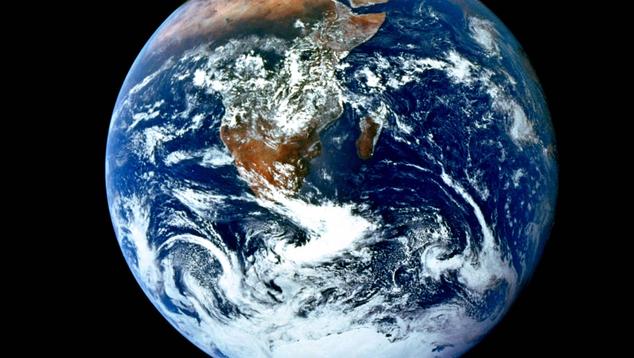WASHINGTON, D.C. -- Americans continue to express complex views about human origins, with a majority believing God played at least some role but also a majority believing humans evolved from less advanced forms of life.
- Though diminished from the early 2000s, the largest segment of Americans, 37%, are creationist purists, saying God created humans in their present form within the past 10,000 years.
- Twenty-four percent of U.S. adults accept the scientific theory of evolution, that humans evolved from less advanced forms of life over millions of years without God’s involvement.
- One in three, 34%, straddle both theories, saying humans evolved, but with God’s guidance.
While these readings have not changed significantly from Gallup’s previous measurement in 2019, the percentage who believe God created humans in their present form within the last 10,000 years is the lowest in this four-decade trend, by one percentage point, and the share who do not believe God had any role in human evolution is the highest recorded, by two points.
These findings, from a May 1-23 Gallup poll, come at a time when Americans are increasingly likely to say they do not identify with a religion or belong to a house of worship, and that religion is not important in their daily lives.
Gallup began measuring Americans’ views of human origins using this question in 1982 and has intermittently tracked opinions since then. Belief in creationism and God-guided evolution reached their peaks of 47% and 40%, respectively, in 1999 and have since trended downward. Meanwhile, support for evolution without divine intervention has nearly tripled since 1999.
Creationist Belief Linked to More Religious, Less Educated, More Conservative Americans
Americans' views on human origins continue to vary sharply, depending on their religious identification, how often they attend church, their political ideology and their education level.
- Strict creationism -- Majorities of U.S. adults who attend religious services weekly or more often, identify as politically conservative, and are Protestant believe that God created human beings in their present form. Half of those who attend religious services nearly weekly or monthly also believe in creationism.
- Strict evolution -- A majority of those who say they do not affiliate with any religion think humans evolved over millions of years without any involvement from God. Pluralities of those who attend religious services less than monthly and political liberals also ascribe to the same strictly evolutionist belief.
- Evolution influenced by God -- Pluralities of Catholics and college graduates believe in evolution over millions of years that was guided by God.
Bottom Line
As Americans have become less religious over the past four decades, their beliefs about the origin of humans have shifted, with fewer now saying God created human beings in their present form and more saying humans evolved without God’s help from less advanced forms of life over millions of years. Combined with the one-third of Americans who believe God guided evolution, a majority of U.S. adults thus believe humans evolved, yet a different majority still believe God played at least somewhat of a role in humankind’s existence.
To stay up to date with the latest Gallup News insights and updates, follow us on X @Gallup.
Learn more about how the Gallup Poll Social Series works.
View complete question responses and trends (PDF download).





